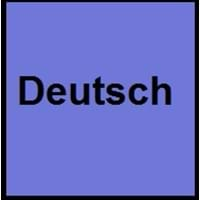German vs Galician
Countries
Austria, Belgium, Germany, Italy, Liechtenstein, Luxembourg, Switzerland
Galicia
National Language
Germany
Galicia
Second Language
North Dakota, United States of America
Not spoken in any of the countries
Speaking Continents
Europe
Europe
Minority Language
Czech Republic, Denmark, Former Soviet Union, France, Hungary, Italy, Namibia, Poland, Romania, Slovakia, Slovenia
Not spoken in any of the countries
Regulated By
Council for German Orthography
Royal Galician Academy (Real Academia Galega)
Interesting Facts
- One of the large group of Indo-Germanic languages is German.
- The second most popular Germanic language spoken today behind English is German language.
- In Galician language, there are no compound tenses.
- The earliest document in Galician language was written in 1228 which was legal charter for a municipality of Galicia.
Similar To
Dutch, Danish, Norwegian, Swedish and English Languages
Portuguese Language
Derived From
Albanian Languages
Latin
Alphabets in
German-Alphabets.jpg#200
Galician-Alphabets.jpg#200
Writing Direction
Left-To-Right, Horizontal
Left-To-Right, Horizontal
Language Levels
Not Available
Time Taken to Learn
Not Available
How Are You?
Wie geht es dir?
Que tal estás?
Good Night
gute Nacht
Boas noites
Good Evening
guten Abend
Boa tarde
Good Afternoon
guten Tag
Boa tarde
Good Morning
guten Morgen
Bos días
I Love You
Ich liebe dich
Ámote
Excuse Me
Entschuldigung
Perdoe!
Dialect 1
Swiss German
Eastern Galician
Where They Speak
Switzerland
East Galicia
How Many People Speak
Not Available
Dialect 2
Swabian German
Central Galician
Where They Speak
Germany
Central Galicia
How Many People Speak
Not Available
Dialect 3
Texas German
Western Galician
Where They Speak
Texas
West Galicia
How Many People Speak
Not Available
Speaking Population
Not Available
Second Language Speakers
Not Available
Native Name
Deutsch
Galego
Alternative Names
Deutsch, Tedesco
Galego, Gallego
French Name
allemand
galicien
German Name
Deutsch
Galicisch
Pronunciation
[ˈdɔʏtʃ]
[ɡaˈleɣo]
Ethnicity
Germans
Not Available
Origin
6th Century AD
c. 1175
Language Family
Indo-European Family
Indo-European Family
Subgroup
Germanic
Not Available
Branch
Western
Not Available
Early Forms
No early forms
Medieval Galician
Standard Forms
German Standard German, Swiss Standard German and Austrian Standard German
Galician
Language Position
Not Available
Signed Forms
Signed German
Not Available
Scope
Individual
Individual
ISO 639 6
deus
Not Available
Glottocode
high1287, uppe1397
gali1258
Linguasphere
52-ACB–dl & -dm
51-AAA-ab
Language Type
Living
Living
Language Linguistic Typology
Subject-Object-Verb, Subject-Verb-Object
Not Available
Language Morphological Typology
Fusional, Synthetic
Not Available
German and Galician Language History
Comparison of German vs Galician language history gives us differences between origin of German and Galician language. History of German language states that this language originated in 6th Century AD whereas history of Galician language states that this language originated in c. 1175. Family of the language also forms a part of history of that language. More on language families of these languages can be found out on German and Galician Language History.
German and Galician Greetings
People around the world use different languages to interact with each other. Even if we cannot communicate fluently in any language, it will always be beneficial to know about some of the common greetings or phrases from that language. This is where German and Galician greetings helps you to understand basic phrases in German and Galician language. German word for "Hello" is hallo or Galician word for "Thank You" is Grazas. Find more of such common German Greetings and Galician Greetings. These greetings will help you to be more confident when conversing with natives that speak these languages.
German vs Galician Difficulty
The German vs Galician difficulty level basically depends on the number of German Alphabets and Galician Alphabets. Also the number of vowels and consonants in the language plays an important role in deciding the difficulty level of that language. The important points to be considered when we compare German and Galician are the origin, speaking countries, language family, different greetings, speaking population of these languages. Want to know in German and Galician, which language is harder to learn? Time required to learn German is 30 weeks while to learn Galician time required is Not Available.





